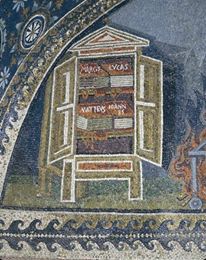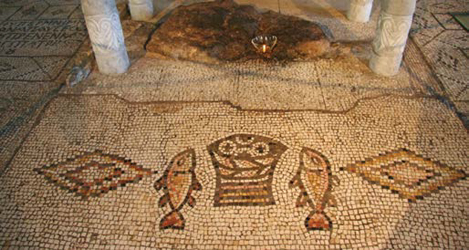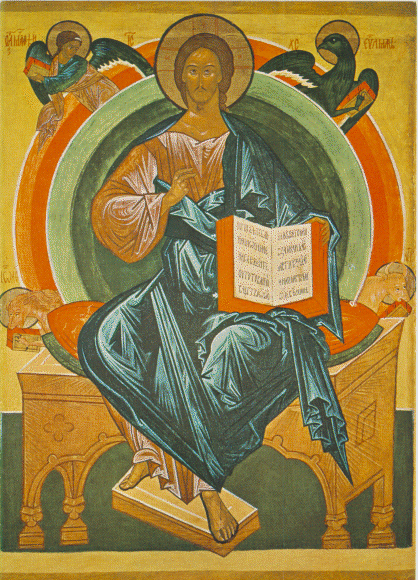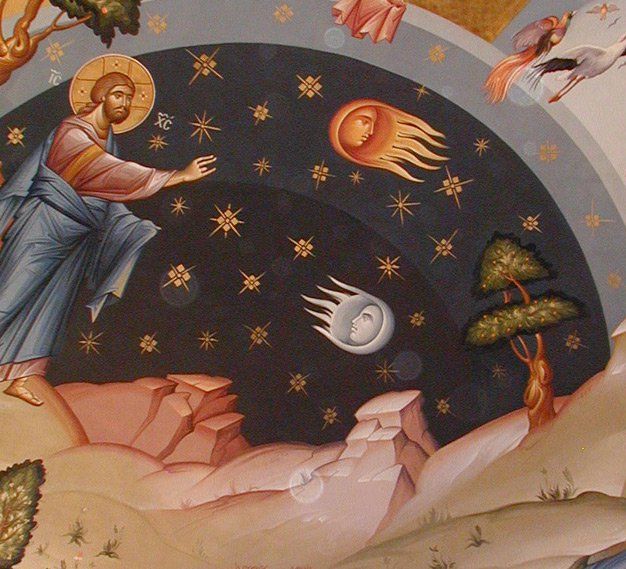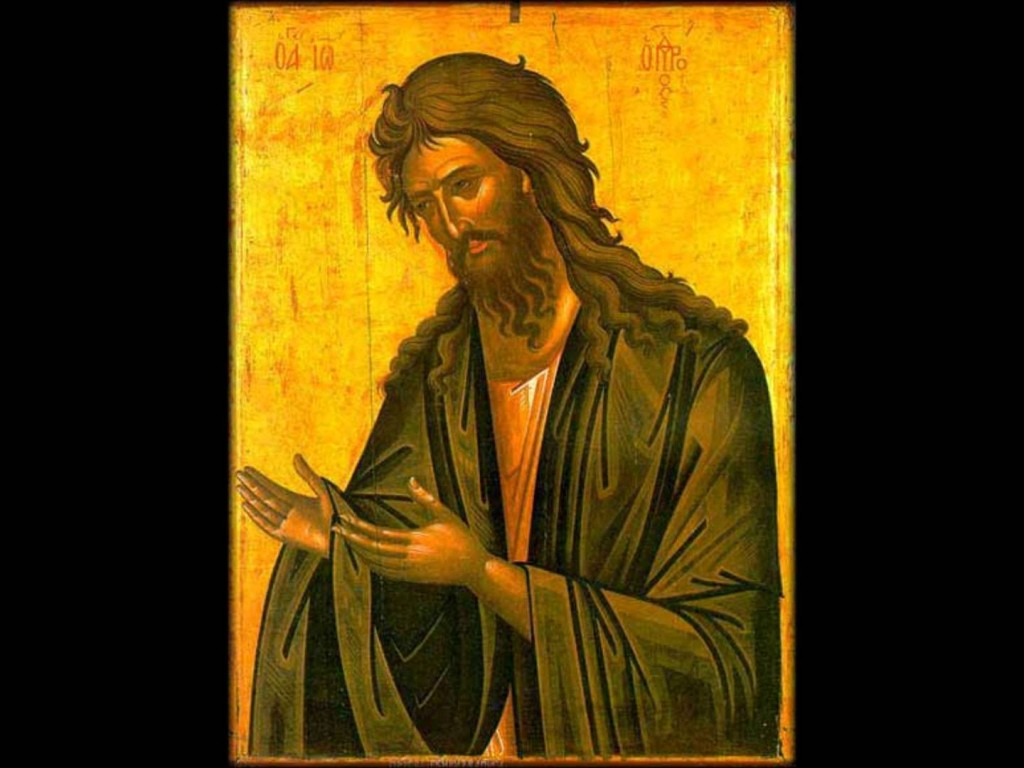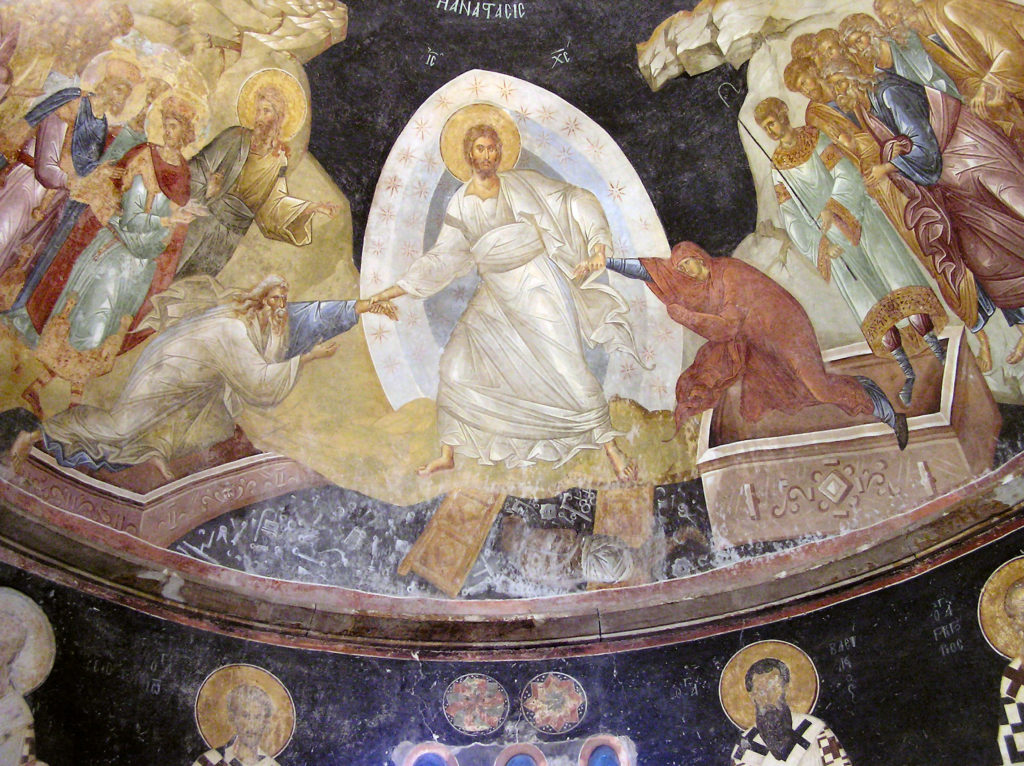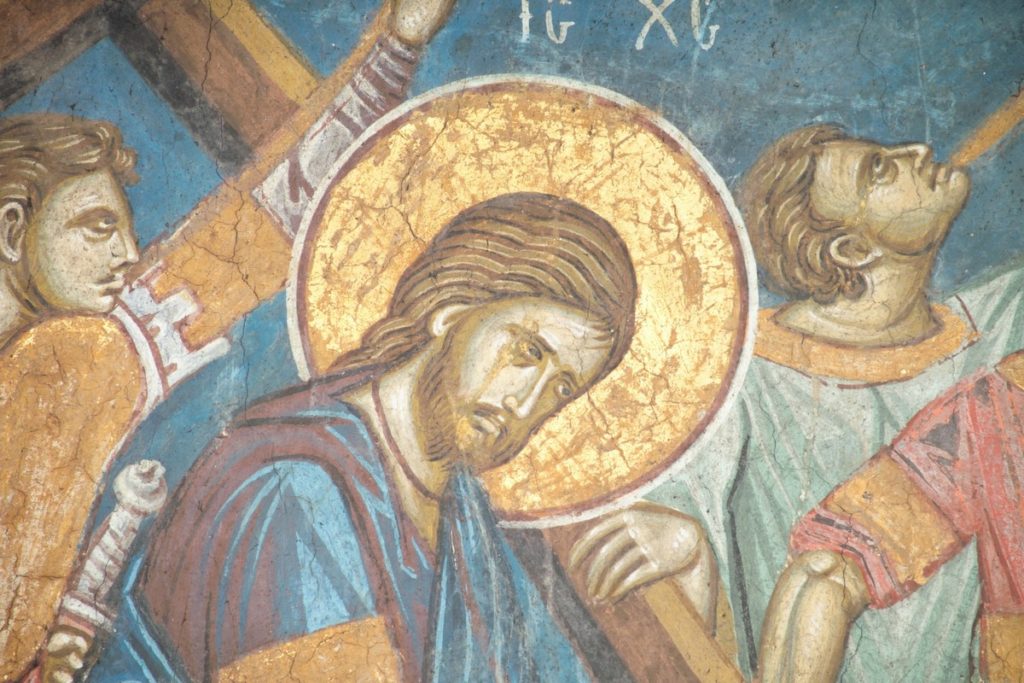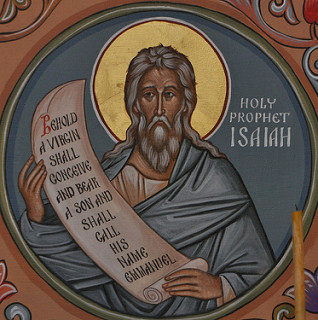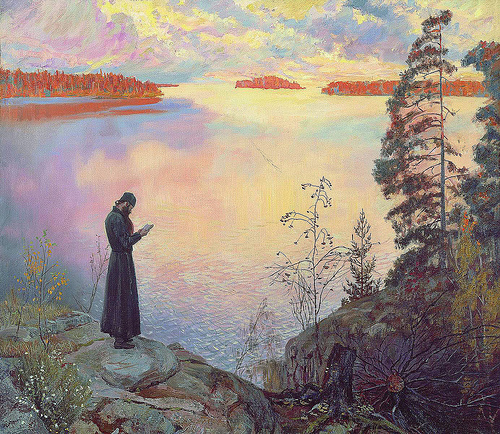VII Pascha Tuesday – John 16: 2-13
Listen to an audio podcast of this post at https://www.spreaker.com/episode/pascha-vii-tuesday-all-truth–66384809
The Lord said to His disciples: They shall put you out of the synagogues: yea, the time cometh, that whosoever killeth you will think that he doeth God service. And these things will they do unto you, because they have not known the Father, nor me. But these things have I told you, that when the time shall come, ye may remember that I told you of them. And these things I said not unto you at the beginning, because I was with you. But now I go my way to him that sent me; and none of you asketh me, Whither goest thou? But because I have said these things unto you, sorrow hath filled your heart. Nevertheless I tell you the truth; It is expedient for you that I go away: for if I go not away, the Comforter will not come unto you; but if I depart, I will send him unto you. And when he is come, he will reprove the world of sin, and of righteousness, and of judgment: Of sin, because they believe not on me; Of righteousness, because I go to my Father, and ye see me no more; Of judgment, because the prince of this world is judged. I have yet many things to say unto you, but ye cannot bear them now. Howbeit when he, the Spirit of truth, is come, he will guide you into all truth, for he shall not speak of himself; but whatsoever he shall hear, that shall he speak: and he will shew you things to come.
St. Theophan the Recluse, when commenting on this saying of Our Lord, that the Holy Spirit would guide us into all truth, was writing at a time when the schools in Russia were officially Orthodox, and yet he was forced to lament the painful reality that even Orthodox writers and educators had accepted the foundational ontological and epistemological error of the modern West, going back to the heretical papist scholastics of the Middle Ages, that grace and nature, and therefore faith and reason, were separate and autonomous:
“When he, the Spirit of truth, is come, he will guide you into all truth (John 16:13).” Why is this source of knowledge not mentioned in books of rhetoric? It is not surprising that this point is not in pagan books of rhetoric, but why is it not in Christian ones? Can it be that when a Christian begins to philosophize he ought to cease being a Christian and forget all the true and unquestionable promises which were given to him? People often explain how to see and hear; they also teach well enough to make generalizations and inductions from what is seen and heard. But when the time comes to unravel the meaning of it all, here the nursling of logic is left to the devices of his own guesswork. Why not suggest to him: you have the revelations of the spirit of truth—follow them. They resolve the meaning of all existence and events in an indisputable manner, for they proceed from God, in Whom lies the source of existence itself. Perhaps all the guessing has multiplied so greatly that now all books (about God’s world) are filled with just guesses precisely because no one remembers to make that suggestion? It would be alright if these books were at least a little worthwhile; but it is clear at first glance that they are but the fruit of childish imagination. – Thoughts for Each Day of the Year
When Our Lord tells us that the Holy Spirit will guide us into “all truth,” He meant all truth. Apart from God’s revelation and from grace, man cannot know truth at any level, including that of the senses and that of reason. Creation is not an autonomous realm independent of the Creator; of course, it is not a part of God or an emanation from God – it has a distinct existence of its own – but it cannot be understood apart from what God enables us to know about it, for, on the one hand, created phenomena only have their existence entirely on the basis of the miracle of ex nihilo creation followed by the miracle of God’s energies guiding and upholding that which was created, and, on the other hand, our finite created minds damaged by sin cannot grasp reality apart from Divine intervention. All of reality is a miracle, and all men, except for those who have attained divine theoria, are in delusion.
Thus science conducted apart from Revelation will never have the right starting point, and such science – falsely so called – will therefore always arrive at the wrong conclusions.
The men who have employed just such false science to gain financial and political control over all the earth have now led our civilization into such a morass of intellectual and moral degeneracy that our survival as free and moral beings will obviously be an act of direct divine intervention. We must actively dispose ourselves, however, to receive God’s help to survive, by uprooting all of the poisonous assumptions about the nature of man, the nature of the world around us, the nature of knowledge itself, and the meaning of history that the contemporary world has implanted in us, and recover a radically Scriptural and Patristic worldview. Apart from this, we are doomed to be mindless slaves of the demons and of their human representatives, the demonized oligarchs who have replaced lawful authority in the latter times.
No doubt, if we undergo this radical conversion, it will result in our being cast out of the synagogues and perhaps even being killed by those who will indeed be doing their god a service. When that occurs, the Lord will give sufficient strength to those Who love Him, by the grace of the All-Holy Spirit.

